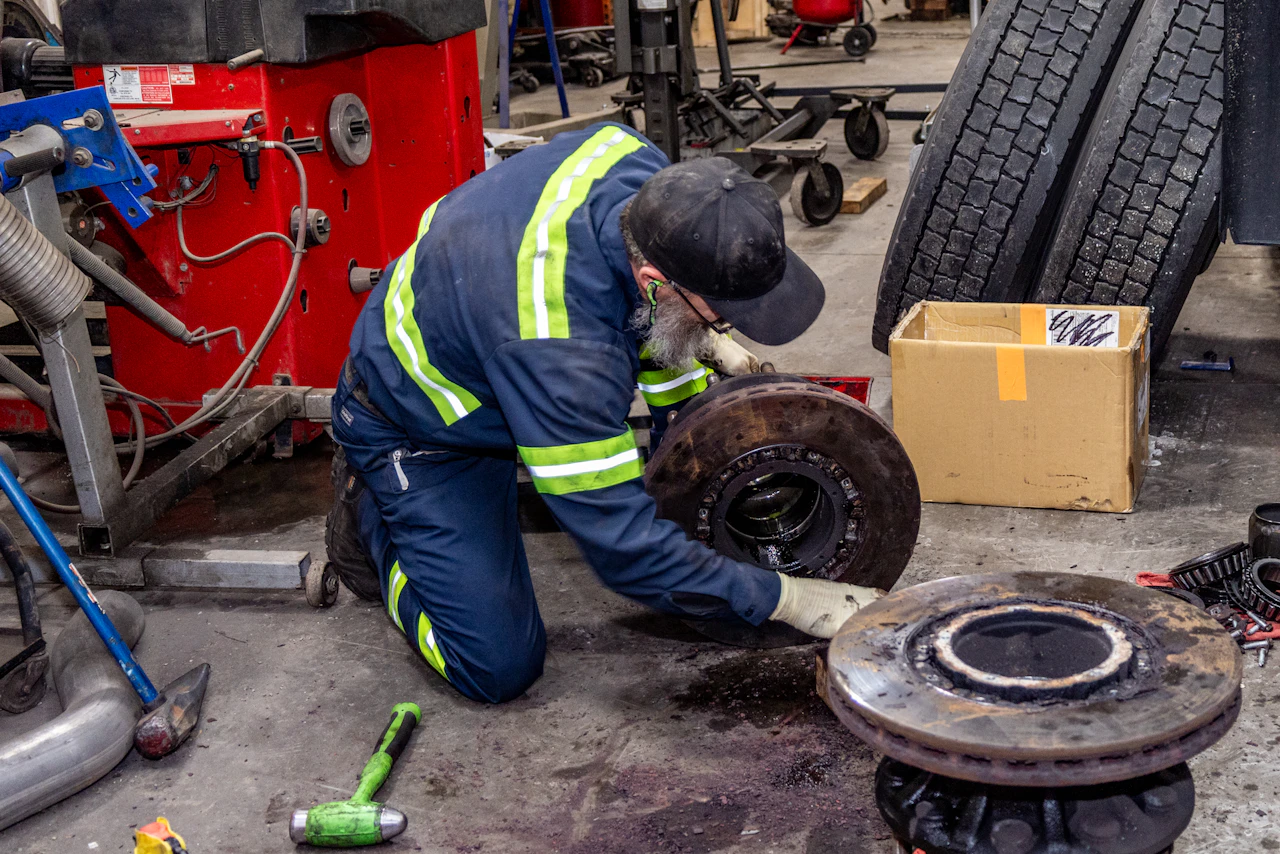As the temperature starts to drop, your heavy-duty trucks' hydraulic systems face a unique set of challenges that, if not navigated correctly, can spell disaster for your operations. With winter just around the corner, now is the perfect time to start preparing for the colder weather.
Don’t know where to start? Don’t worry; we’ve got you covered! That’s why we’ve put together this quick guide to let you know everything that you need to know about to keep these systems safe and your trucks on the road during the coldest months.
The Winter Challenges
During the winter, heavy-duty trucks are exposed to a range of challenges not found at any other time of the year. Cold temperatures are particularly harsh on hydraulic systems, potentially affecting various components, such as the steering and braking systems. Icy roads and heavy snowfall can worsen these issues, making it crucial to proactively address these challenges to prevent breakdowns and ensure the safety of your drivers and the efficiency of your fleet.
Hydraulic Fluids
Hydraulic fluids facilitate the transfer of power to critical components, such as the steering system and brakes. In winter, these essential fluids face a set of unique challenges that demand your attention.
During the chilly winter months, choosing the right hydraulic fluid is absolutely essential. When subjected to cold temperatures, conventional hydraulic fluids can thicken and impair the system's performance, potentially leading to severe damage or even accidents on the road.
To mitigate this risk, it's crucial that you choose hydraulic fluids specifically formulated for cold weather conditions. These specialized fluids have a lower pour point and enhanced viscosity characteristics that allow them to flow smoothly even at sub-zero temperatures.
By using the right hydraulic fluid, you not only safeguard the performance of your truck but also prevent costly breakdowns and repairs.
Hoses
Your heavy-duty truck's hydraulic hoses are the vital links that transport hydraulic fluid between various components. However, these hoses are especially vulnerable to cold weather, making them prone to cracks and leaks.
Here are a couple of key considerations for effective winter hose maintenance maintenance:
Insulation: Apply insulation to your hydraulic hoses. Insulation materials designed for this purpose provide protection against extreme cold, helping to maintain the optimal operating temperature of your hydraulic system.
This not only preserves the integrity of your hoses but also prevents the hydraulic fluid from cooling too quickly, ensuring consistent performance.
Regular Inspections: Schedule routine inspections of your hydraulic hoses. Pay close attention to signs of wear and tear. Replacing any damaged hoses promptly is always crucial, but even more so in these colder weather conditions.
Proactive inspection and maintenance can save you time and money and prevent potentially hazardous situations.
Cylinders: Beating the Freeze
Hydraulic cylinders are integral in specialized heavy-duty vehicles such as dumper trucks and enable functions like lifting and dumping. However, these critical components can be significantly affected by low winter temperatures, including the risk of freezing.
Here's what you can do to prevent cylinder issues in the winter:
Lubrication: Adequate lubrication is crucial to ensuring the smooth operation of hydraulic cylinders during the winter season. Applying the right lubricants can help prevent freezing and maintain the efficient movement of these components.
Anti-Freeze Solutions: In extremely cold conditions, consider adding anti-freeze solutions to your hydraulic system. These solutions provide an added layer of protection against freezing, ensuring your hydraulic cylinders continue to function optimally even in the most bitter cold.
Preventative Measures for a Smooth Winter
In addition to addressing specific components, there are general maintenance measures that will help ensure your heavy-duty truck's hydraulic system stays in working order during the winter months.
Regular Checkups: Prior to the onset of winter, schedule regular maintenance checkups. Professional inspections by experts familiar with heavy-duty hydraulic systems can identify potential issues and perform preventive maintenance, saving you from costly breakdowns and operational disruptions during the season.
Heaters and Insulation: Installing heaters and insulation for critical hydraulic components can help maintain optimal operating temperatures. This proactive approach ensures your hydraulic system functions smoothly, even in frigid conditions.
Follow Manufacturer Recommendations: Always adhere to the manufacturer's recommendations for maintenance and fluid types. Manufacturers know better than anyone how to look after your truck’s systems, so their word is gospel.
Safety Considerations
Safety always comes first, especially when carrying out winter maintenance on heavy-duty truck hydraulic systems. Here are some crucial safety considerations to bear in mind during this critical period.
Personal Protective Equipment (PPE): Always ensure you and your maintenance team are equipped with the appropriate personal protective equipment (PPE), including gloves and safety glasses, when handling hydraulic fluids and conducting maintenance tasks. Safety should never be compromised.
Emergency Protocols: Everyone involved in maintenance tasks should be well-versed in emergency protocols. In the event of accidents or unexpected system failures, having a well-defined plan in place is essential to ensuring the safety of all involved.
Conclusion
A robust winter maintenance strategy for heavy-duty truck hydraulic systems is essential to guaranteeing the reliability and safety of your vehicles during the harsh winter months. From selecting the right hydraulic fluids to protecting hoses and cylinders, these proactive measures can make a substantial difference in preventing costly breakdowns and keeping your operations running smoothly.
You play a pivotal role in ensuring a successful winter season. By following the comprehensive tips and guidelines provided in this article, you'll be well-prepared to tackle the unique challenges of winter and keep your heavy-duty trucks running smoothly, even in the most adverse conditions.

